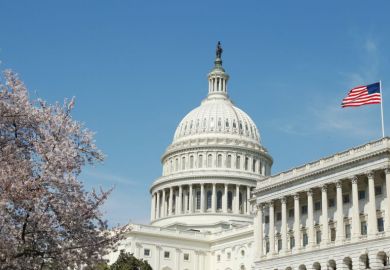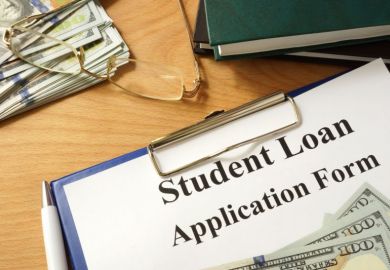Financial services and media tycoon Michael Bloomberg has given his alma mater, Johns Hopkins University, $1.8 billion (£1.4 billion), the largest ever donation to any US educational institution, to help it cover student financial aid.
At a time of growing national worry over escalating college student debt, Mr Bloomberg – a possible 2020 presidential candidate – described his gift as a guarantee that Hopkins could forever graduate all of its students debt-free.
Detailing his decision in a column in the New York Times, the former New York City mayor said that too many US students face a financial blockade that limits their college choices and helps perpetuate intergenerational poverty.
That barrier “strikes at the heart of the American dream: the idea that every person, from every community, has the chance to rise based on merit”, Mr Bloomberg wrote.
Mr Bloomberg has a personal fortune of more than $50 billion that various estimates rank in the top dozen individual totals worldwide. He previously had given Hopkins a total of $1.5 billion since 1965 to support research, teaching and financial aid.
It was not immediately clear, however, how the donation just to Hopkins – already one of the most well resourced US universities – will address the big-picture problem of current and former US college students having accumulated some $1.5 trillion in unpaid loans, the nation’s second-largest consumer debt segment after mortgages.
Hopkins is ranked 12th in Times Higher Education’s World University Rankings, and for 38 straight years it has led all US universities in research and development expenditures. Its fiscal year 2016 total was $2.4 billion, according to the latest federal figures.
Johns Hopkins also has an annual undergraduate sticker price of about $50,000. For many years, it has been helping its students cover – by grants or loans – 100 percent of their demonstrated financial need. Yet 44 percent of those students graduate with some loan debt, averaging about $24,000. The Bloomberg gift will let Hopkins replace all loans with grants, and be “more generous” with those grants, a university official said.
Currently 27 per cent of the Hopkins freshman class identify themselves as underrepresented minorities, and about 15 percent of Hopkins students qualify for the federal Pell grant programme for low-income students. With the Bloomberg money, Hopkins now hopes to raise that Pell percentage to 20 percent by 2023, in part by actively seeking academically qualified high school students from middle- and low-income backgrounds.
The son of a Boston-area dairy company accountant, Mr Bloomberg attended Hopkins with a federal student loan and became wealthy as a Wall Street investment banker. He parlayed that initial fortune into billions by creating a company to compile stock data and related information for investors, just as the computer revolution took off in the 1980s.
“My Hopkins diploma opened up doors that otherwise would have been closed, and allowed me to live the American dream,” Mr. Bloomberg wrote in the Times article.
Some of the immediate political analysis of the Hopkins gift centred on a possible entry into the next presidential race by Mr. Bloomberg – a 76-year-old Democrat who served as New York’s mayor while registered as a Republican and who has been sharply critical of President Trump.
Mr Bloomberg had already made at least $6.4 billion in philanthropic donations to a variety of causes prior to the new Hopkins gift, which could serve as a fresh reminder of his ability to both finance a national political campaign and compete on an issue of leading public concern.
Register to continue
Why register?
- Registration is free and only takes a moment
- Once registered, you can read 3 articles a month
- Sign up for our newsletter
Subscribe
Or subscribe for unlimited access to:
- Unlimited access to news, views, insights & reviews
- Digital editions
- Digital access to THE’s university and college rankings analysis
Already registered or a current subscriber?








